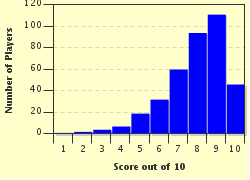Quiz Answer Key and Fun Facts
1. Let's say that you discover your friend has been thinking about investing all of his savings in a risky business scheme. You meet with him to advise him that you believe he should not deplete his savings. However, he says to you, "It's too late. I've already done it." What cliche might he then use to follow these two sentences?
2. Perhaps you've heard the expression "a dog in the manger". Perhaps you even know that it means "someone who cannot, may not, or will not use something yet denies anyone else the opportunity to use it". However, do you perhaps know what is often credited as the original source of this expression?
3. Occasionally, you may hear someone say something like, "He can draw the long bow" when listening to someone else. Many older people in your family may be particularly good at drawing the long bow. What does this expression mean?
4. Which expression more than likely came from a particular practice for the burial of the dead, probably at sea?
5. The college's administration had made a decision to replace Betsy as chair of the English Department with someone from another, more prestigious college, despite evidence from several faculty members that Betsy had made valuable improvements to the department. Which cliche below could one use to describe what the administration of this college had done?
6. My brother-in-law and I were sitting around drinking a beer or two and talking about life, the universe, and everything (for real, not the Douglas Adams book). At one point, we began discussing our respective places of employment when he explained, "It's dog eat dog where I work". What the heck did he mean by that?
7. One possible explanation for the origin of this next expression is that one of its words is a corruption of the archaic plural word for eyes--"eyne". In other words, the expression derived from others' declarations that something was pleasing to the eyes (or eyne). Which expression below am I talking about?
8. This expression possibly is derived from what was considered one of the heaviest puddings eaten by the English. If this is so, then such heaviness would metaphorically represent the weight of one's melancholy mood when one is said to be in this certain place mentioned in a particular cliche. What cliche am I talking about?
9. Let's say I am a vocalist who sings at various local events. Let's then pretend that the manager of a local baseball stadium came to me to ask if I'd be willing to be a reserve singer of the National Anthem at next weekend's ball game. In other words, someone else was going to sing, but this manager wanted to know if I would be available in case the first singer couldn't be there. Let's say that I was excited and more than willing and told this manager I would be immediately available at only a moment's notice. Or, what cliche could I use as my response?
10. What expression would I use to refer to any form of entertainment for which each participant pays his or her own share of the cost or fee?
Source: Author
alaspooryoric
This quiz was reviewed by FunTrivia editor
looney_tunes before going online.
Any errors found in FunTrivia content are routinely corrected through our feedback system.

